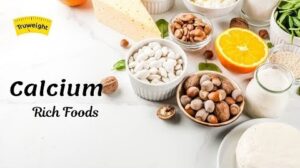How does food play a pivotal role in your body age? Body age varies depending on your lifestyle. With the right lifestyle changes, you could even have a younger biological age than your chronological age.
We have often heard various renditions of “age is just a number”. In fact, it has become one of the most popular quotes for humans to dodge questions about their age. Though with this, we aim to come across as cool to the listener, in reality, we all secretly obsess about the concept.
For most of us, the only mirror to our body age is our external look. Had it not been the case, we would not have been investigating the appearance of newer fine lines, or doing face yoga, ordering body shaping belts or browsing through body sculpting testimonials. All this is because the outer appearance means a world to us. What we forget is that ageing is a vast concept and is agnostic of how many years one has spent living.
All you need to know about Body Age
The truth is that body age is not about how you look but in what shape your body is internally, Body (biological) Age relates to your physical and mental condition and can differ completely with your actual (chronological) age. Factors like sleep, stress, nutrition, social life, and other lifestyle aspects affect your body’s age which ultimately also impact external appearance.
Body age is calculated using weight and body fat percentage to produce a guide to judge if your body age is above or below the average for your chronological age. Knowing the body age can be an eye-opening experience for some. Your body may be showing signs of aging that don’t sync with the number of candles you blew out on your last birthday. Well, it can be used as a reference point to start working on improving your health condition.
Can diet influence the body age?
In an astounding research, Dr. Bruce Lipton proved, “You are what you eat.” And how micro-RNAs from the food bind themselves to the human chromosomes and regulate our genetic expression. The study also thrust upon going back to organic or natural products and not the ones developed under petrochemical environments. This is because the food we eat has a profound effect on our biology, genetics, and overall health.
Dietary Evils to avoid
As stated in the research, we can control the biology of our body also by offsetting the wear and tear that comes naturally with age. But certain types of food speed up the aging process of our body. The worst type of foods are:
1. Excessive sugar – Processed sugar dehydrates the skin, damages the collagen, and fast tracks the ageing process. Steer clear of pastries, biscuits, or other festive savouries that come your way.
2. Deep fried foods – When we deep fry the foods, free radicals – or the main culprit behind ageing – are formed. Stay away from fries and fritters if you love your internal organs.
3. Eating Too Many Refined Carbs (maida/ white rice preparations) – Refined grains such as maida form a glue inside our digestive system making it difficult to digit. It then absorbs the nutrients from our body to get the job done, depleting us of vital nutrients.
4. Excessive starving – A study published in the journal ‘Molecular and Cellular Biology’, shows that starving can cause the death of certain important cells in the body. Depriving yourself of important nutrients further destroys immunity.
5. Eating leftover foods – Stale or leftover food causes digestive issues and acidity. It may also lead to food poisoning and diarrhea, which severely burden your health.
Reduce body age through diet in a healthy way


2. Antioxidant-rich diet – As we age the telomeres at the end of our DNAs shorten. By looking at the length of the telomeres, one can determine a person’s age. A diet high in phytonutrients and antioxidants is also linked to longer telomeres. So, eat plenty of leafy greens, berries, cruciferous veggies, and other brightly colored produce, and drink lots of green tea.
3. Diet pattern – Follow small and frequent eating patterns. This will keep sugar levels under control, keep weight under check, and metabolic syndrome at bay.
4. Include healthy carbs in the diet – Stick to whole-food carbohydrates, such as vegetables, legumes, and whole-kernel grains. They take longer time for the body to digest, releasing sugar in a slow, steady stream. The resistant starches and fermentable fibers in complex carbs also feed your hungry gut a flora and influence signaling molecules that help moderate insulin release.
5. Balanced diet – A balanced diet also contributes to enhance independence as you age. Follow a diet consisting of fiber, protein, vitamins, and minerals and other nutrient-dense foods to stay agile at any age.
6. Eat fresh foods – Fruits and vegetables are a powerhouse of nutrients, unadulterated, and found in abundance. What’s better than them fighting ageing from inside out?
Conclusion
Not all age-related issues can be fought by slathering a topical treatment on the skin. We must introspect, what choices we make or actions we take to ensure the anti-ageing of our internal system. As they rightly say, beauty is only skin deep.
The chronological age is irreversible and is not dependent on life habits. Conversely, body age varies depending on your lifestyle (diet, exercise, sleep, attitude, stress, etc.). With the right lifestyle changes, you could even have a younger biological age than your chronological age.


Suhasini Mudraganam
Chief Nutritionist











